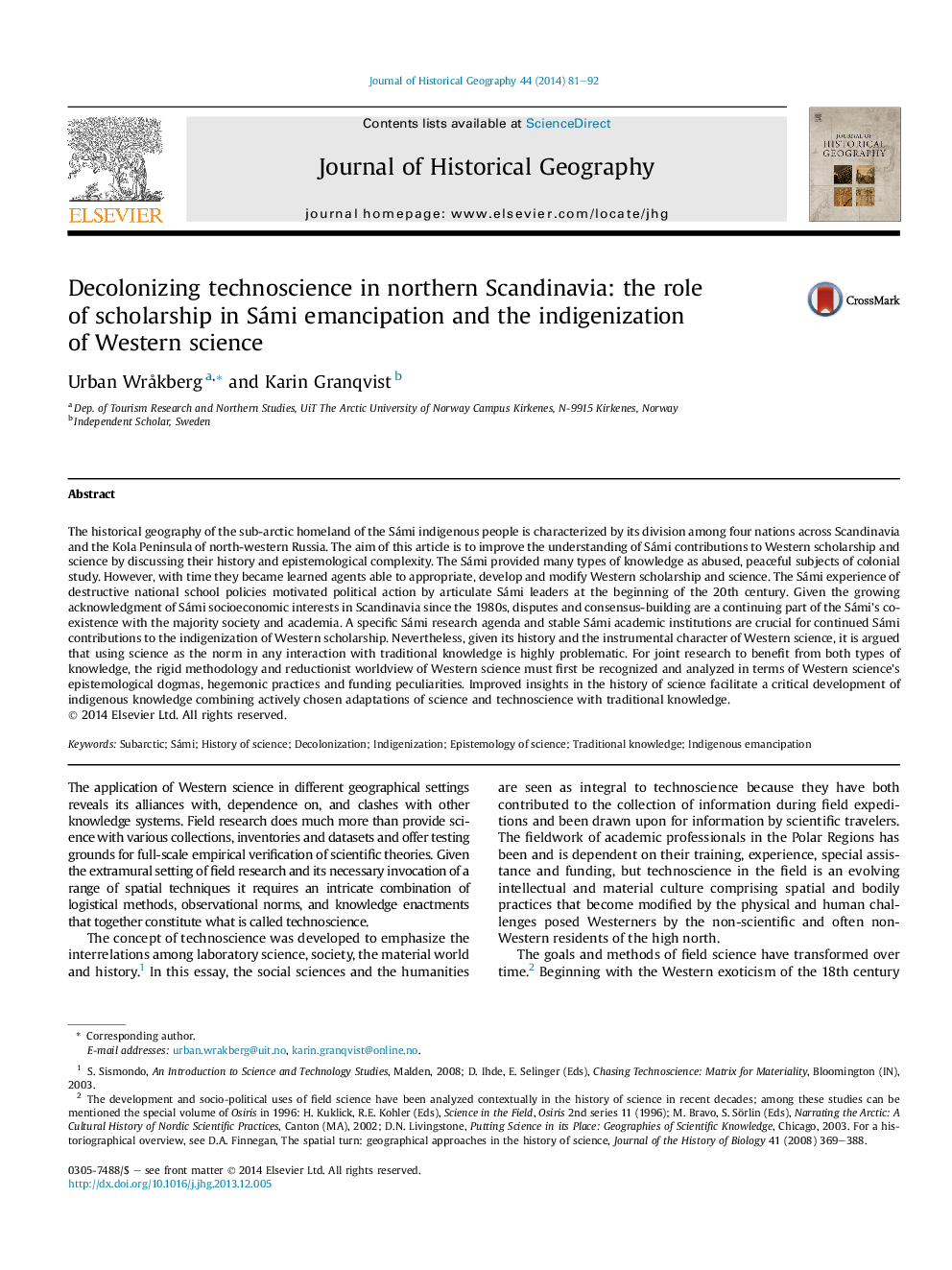| کد مقاله | کد نشریه | سال انتشار | مقاله انگلیسی | نسخه تمام متن |
|---|---|---|---|---|
| 1039002 | 1483981 | 2014 | 12 صفحه PDF | دانلود رایگان |

• Features the use of Western learning by the Sámi indigenous people of Scandinavia.
• Relates the indigenization of Western science to current philosophy of science.
• Argues that traditional knowledge cannot be furthered by integration in science.
The historical geography of the sub-arctic homeland of the Sámi indigenous people is characterized by its division among four nations across Scandinavia and the Kola Peninsula of north-western Russia. The aim of this article is to improve the understanding of Sámi contributions to Western scholarship and science by discussing their history and epistemological complexity. The Sámi provided many types of knowledge as abused, peaceful subjects of colonial study. However, with time they became learned agents able to appropriate, develop and modify Western scholarship and science. The Sámi experience of destructive national school policies motivated political action by articulate Sámi leaders at the beginning of the 20th century. Given the growing acknowledgment of Sámi socioeconomic interests in Scandinavia since the 1980s, disputes and consensus-building are a continuing part of the Sámi's co-existence with the majority society and academia. A specific Sámi research agenda and stable Sámi academic institutions are crucial for continued Sámi contributions to the indigenization of Western scholarship. Nevertheless, given its history and the instrumental character of Western science, it is argued that using science as the norm in any interaction with traditional knowledge is highly problematic. For joint research to benefit from both types of knowledge, the rigid methodology and reductionist worldview of Western science must first be recognized and analyzed in terms of Western science's epistemological dogmas, hegemonic practices and funding peculiarities. Improved insights in the history of science facilitate a critical development of indigenous knowledge combining actively chosen adaptations of science and technoscience with traditional knowledge.
Journal: Journal of Historical Geography - Volume 44, April 2014, Pages 81–92